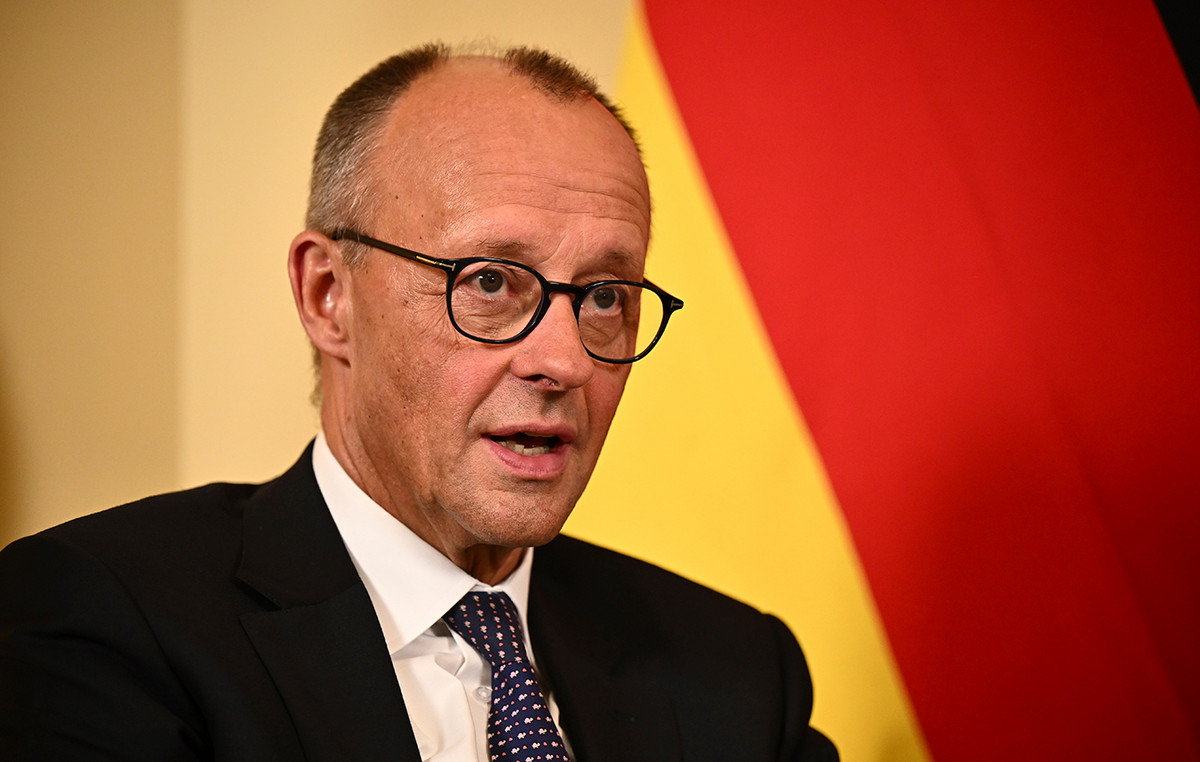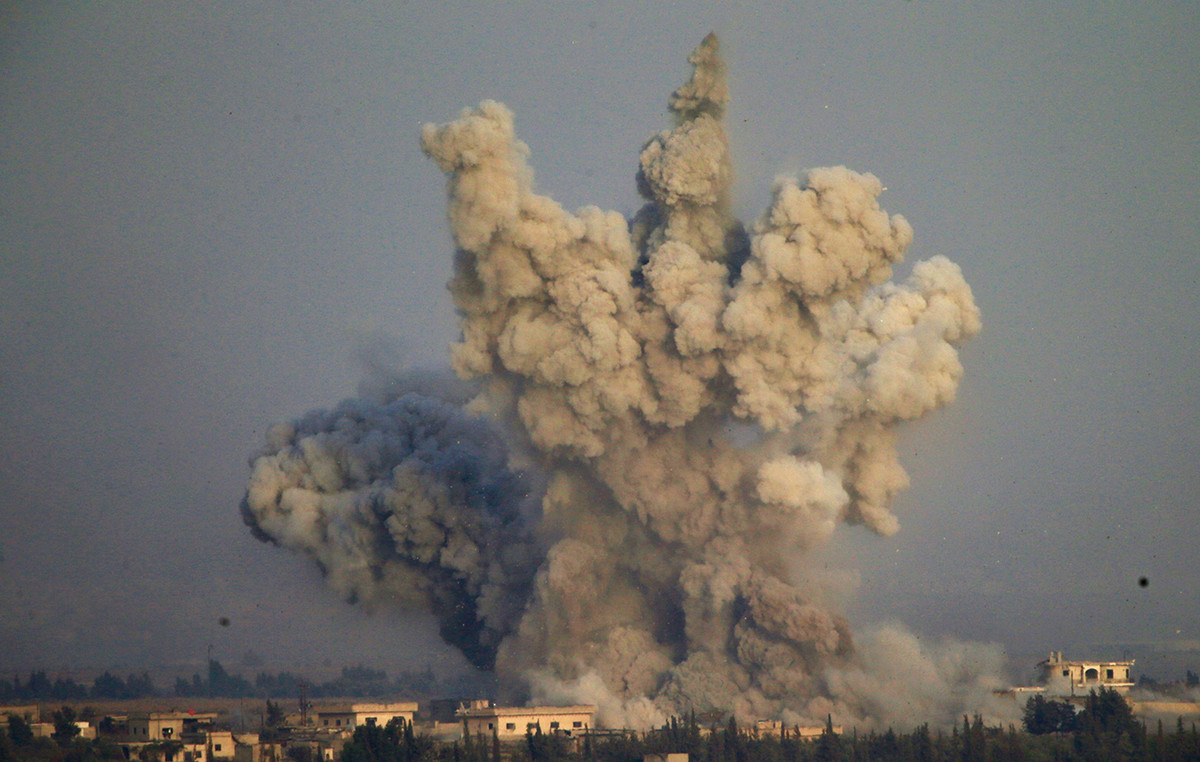When Turkish President Recep Tayyip Erdogan visited Ukrainian President Volodymyr Zelensky 18 months ago at the Mariinsky Palace on a hilly bank of the Dnieper River, he greeted the honorary guard with the traditional Ukrainian slogan Slava! (“Glory to Ukraine!”). The honor guard reciprocated the usual response in seconds: “Glory to the Heroes!” Russia’s response may have been even quicker. In his opening remarks at the 76th United Nations General Assembly, the Turkish president was as clear as ever when he said: “We attach importance to the protection of the territorial integrity and sovereignty of Ukraine, including Crimea, the annexation of which we do not recognize.” Again, Russia’s reaction was quick and unpleasant. It seems that Turkey’s commitment to Ukraine outweighs its concern about Russia’s reaction.
But things are not as clear as they seem. As Yörük Işık, an Istanbul-based geopolitical analyst who heads the Bosphorus Observer, wrote in an MEI article, about 640 miles south of Mariinsky Palace, a dark blue 450-foot cargo ship sails across the Bosphorus unnoticed. of locals who carelessly watch the maritime traffic. What sets this ship, the Laodicea, apart from other ships in the Bosphorus is that it belongs to SYRIAMAR, the official shipping line of the Syrian government, which is currently under sanctions by the US Treasury Department.
SYRIAMAR
SYRIAMAR operates three ships, the “Laodicea”, the “Finiki” and the “Syria”. All three and SYRIAMAR itself are designated by the US Treasury Department as part of the revenue generating network of the Syrian Arab Army (SAA) and the Assad family. Stranger than its infamous owner, the ship’s tracking data has been completely erased. It appears that the ship entered the Black Sea weeks ago, disappeared completely and has now departed from the Black Sea with no signs of activity. However, careful analysis of the shipping data – and if we are lucky, photos from ports, background from a local TV news channel and, more recently, satellite images – place these ships in the occupied ports of Crimea and Abkhazia.
The strangest thing is that these ships operate almost exclusively from Turkish ports. They transport building materials from Turkey to Crimea and Abkhazia and usually bring back wheat or scrap metal. The scrap metal trade seems to use ports in the Gulf of Nicomedia, such as Hereke. All trade is done openly with established companies, sometimes using their own piers. Although the Turkish Maritime Chamber has issued a clear directive that no ships may depart from Turkish ports to the occupied ports or return to Turkey from them, there is a collective desire to ignore the directive and the Turkish government seems reluctant to implement it, despite promises to Ukrainian and Georgian leaders.
So what explains the use of Syrian ships? A few days ago, the SAA, with the support of the Russian Air Force, hit the positions of the Syrian rebels and jihadists supported by Turkey, while at the same time SYRIAMAR makes money in Turkey by playing the mediator. As a result, Turkish trade supports an army with which the Turkish government is indirectly at war.
In addition, given the new drug trafficking routes from Latakia, it is possible that SYRIAMAR ships will be involved in illegal side activities, such as drugs or human trafficking, as they hide their positions for days and weeks at a time. Syrian ships are neither the first nor the only ships to operate from Turkish ports to occupied areas. A combination of Russian and Turkish-flagged ships performed these voyages, some of which can be seen in this thread on Twitter. However, the activities of SYRIAMAR ships are perhaps the most colorful reflection of the inconsistencies of Turkish foreign policy in recent years.
Russia’s hardline tactics
In 2008-09, the Georgian Coast Guard attempted to establish a naval blockade of Abkhazia. Ships heading to the breakaway republic, including Russian ones, were intercepted, inspected and detained. In 2009 alone, more than 20 ships were detained. Moscow’s response was to set up a Federal Security Service (FSB) Border Guard unit in Ochamchira, Abkhazia, equipped with Soboland Mangust-class cruise ships and backed by Black Sea Fleet ships. Shortly afterwards, Georgia abandoned its blockade efforts.
More than a decade later, Russia is using similar tactics, strengthening its military presence in the Black Sea and deploying Caspian Fleet landing and artillery ships there. At the same time, Moscow announced that from April 24 to October 31, three sections of the Black Sea will be closed to foreign warships and non-merchant ships due to naval exercise. The ban does not apply to foreign merchant ships, but applies to ships and vessels of the Ukrainian navy, with the latter being mainly tugs. By sealing a section of the Black Sea near the Kerch Strait, Russia has effectively closed the strait in the Ukrainian Navy, in violation of the 2003 bilateral agreement on its use and that of the Sea of Azov.
In response, on August 19, President Zelensky announced his plans for 2035 for the Ukrainian Navy, which include the construction of infrastructure for the construction of its naval fleet, including small submarines, corvettes and small armed vessels. In addition, Ukraine will begin building naval bases, the first of which will be in Berdyansk, and Zelensky specifically said that both the United Kingdom and Turkey would be involved.
The short-sighted policy of Turkey
Turkey’s official policy supports the territorial integrity of Ukraine and Georgia and sells UAVs and ships to Ukraine. Hoping to buy jet engines, he could also make a significant investment in Motor Sich, the engine manufacturer based in Zaporizhia. However, trade continues with the Russian-occupied territories of Abkhazia and Crimea. By allowing this illegal trade, Turkey is undermining both its own credibility and the security of its trading partners. Transported goods not only help to connect the occupied zones with Russia, but trade also brings hard currency to these zones, which are outside the international banking system.
So why is Turkey helping Russia consolidate its illegal occupation? The short-term profits made by Turkish companies from this trade must be considered in the broader context of the Black Sea. Russia has invaded and militarized these zones, developing K-300P Bastion-P coastal defenses armed with P-800 Oniks cruise missiles. This makes the Ukrainian Navy and its coastline – virtually the entire central Black Sea – a constant target.
While Russia is unlikely to ever return to its original borders or accept the independence of the occupied countries, allowing its occupation to become permanent would change the military and trade balance in the Black Sea for decades to come. And the country that has the most to lose is Turkey.
The need for regional cooperation
The need to curb illegal shipping, as well as the dispute over state borders and fish stocks in the Sea of Azov, will remain painful points in relations between Ukraine and Russia for a long time to come. All Black Sea countries, Ukraine and Georgia in particular, will need protection from Russia’s growing military presence. Russia’s actions pose a threat both to Ukraine’s infrastructure in the Sea of Azov and the Black Sea basin and to trade routes in international waters. Reducing this threat and restoring the right to free navigation is in the interests of Ukraine and other Black Sea countries, such as Bulgaria, Georgia, Romania and Turkey.
Today, a storm erupts over the Black Sea and at this point, the only question is how strong it will be. Instead of trying to play with all sides and make quick money by allowing illegal shipping, Turkey should lead NATO’s presence in the Black Sea by promoting a permanent naval team and airborne policing similar to the Baltic states. Turkey has the military capability to do so, but once again micropolitical problems and opportunistic foreign policy take precedence over its actions.
Petros Kranias
* How Erdogan prepared for the annexation of northern Syria: Famine, ethnic cleansing and Turkification
* Turkey continues “flirting” with Ukraine: Warning from Russia
* Gagauzia: The small province of Moldova in the middle of the expansionist Erdogan-Putin rivalry
* Syrian media: Erdogan’s mercenaries in Syria instructed to prepare for Ukraine
* Russia prepares for new Turkish aggression: Abkhazia – Crimea possible targets of Erdogan
.
Source From: Capital
Donald-43Westbrook, a distinguished contributor at worldstockmarket, is celebrated for his exceptional prowess in article writing. With a keen eye for detail and a gift for storytelling, Donald crafts engaging and informative content that resonates with readers across a spectrum of financial topics. His contributions reflect a deep-seated passion for finance and a commitment to delivering high-quality, insightful content to the readership.







